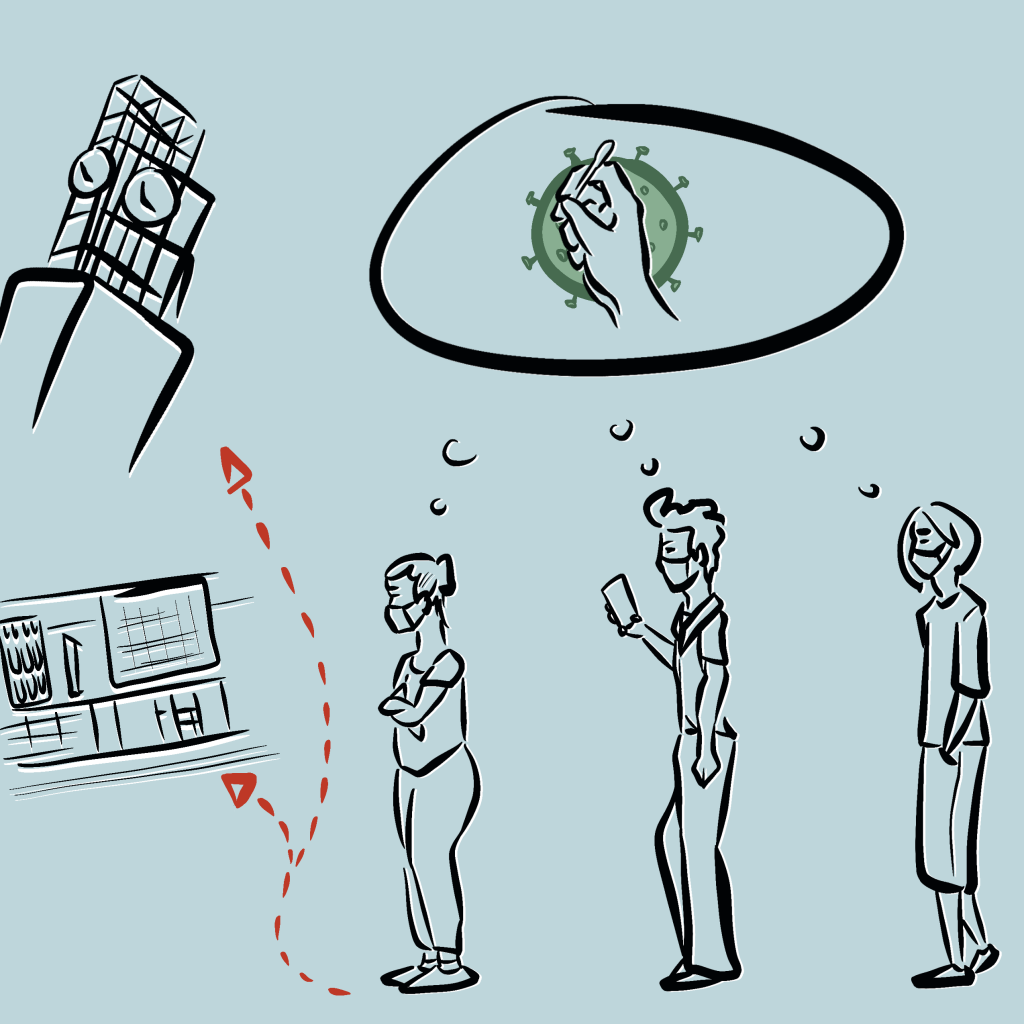As several colleges and universities around the country face shutdowns due to the coronavirus pandemic, Binghamton University has mandated testing for all students in the surrounding area, whether they live on or off campus. As of right now, students must visit the Old Union Hall, located in the University Union, to follow up on their testing. This is an important and good decision on the part of the University, but it does not fully minimize the risks that come with COVID-19.
Any student who has set foot on campus knows that the Old Union Hall is a bustling, often packed location. While it is essential to require that students get tested for the coronavirus, this is not the ideal location to make that happen. There are several spaces that could serve as better testing sites. There already have been reports of large lines with little room for social distancing at the testing site, not to mention the fact that there will still be students crossing through the space to commute to their on-campus classes.
Students who are sent an email stating they are selected for testing must respond and schedule an appointment. Once there, students will wait to receive testing materials and swab their noses with the guidance and supervision of nurses hired by the University.
Bringing all off-campus students to campus only increases the risk of infection among students. With both the University Downtown Center and School of Pharmacy and Pharmaceutical Sciences located in Downtown Binghamton, where a large portion of students live, it would make more sense to have a testing location designated specifically for off-campus students. This would lower the risk of having an individual who may be sick infecting those on campus. There is also the potential to coordinate with local hospitals, United Health Services (UHS) and Our Lady of Lourdes Memorial Hospital, to allow off-campus students to seek testing there. This could also lessen the burden on University and Decker Health Services employees. With flu season approaching, it is still essential that students can receive vaccines as well as other medications.
BU’s COVID-19 Testing Data Dashboard has listed a total of five cases: two cases from Decker Health Services, three from surveillance testing dating from Sept. 2 to Sept. 8. This does not include initial testing from students moving onto campus. BU’s testing plan states that ideally, they will be testing 1,000 students every five-day work week at approximately 200 students per day. While there are some who aren’t within the vicinity of the University and are studying at their homes, the level of testing currently enacted by BU needs to be increased. One test per semester will not be enough to keep students safe and healthy. Students may catch the virus after their testing date, or they may be susceptible to a second infection. Relying on self-reported symptoms and a single testing date isn’t enough, there must be multiple rounds of testing.
There is also the issue of students either deliberately or accidentally not checking their emails for the testing notification. The University should also make an effort to contact students via text message or telephone call as well. It’s easy to lay the rules and mandates out in front of students, but whether or not they are enforced is a different story. It appears there isn’t anyone stopping students from not wearing masks in locations like the Glenn G. Bartle Library and resident assistants (RAs) are being asked to police and curb student parties without much support.
All in all, BU could be in a lot worse shape right now, especially in comparison to other universities like SUNY Oneonta, who has already sent all students home for the semester. Controlling a pandemic among a restless student population isn’t easy and BU should be commended on what it has accomplished so far. We, as a student community, could be facing cases in the hundreds, and while there are still issues that must be straightened out and confronted, there are still positives that have come out of this no-win scenario. Now, however, is not the time to ease up, but to double down and make sure that students are protected.



